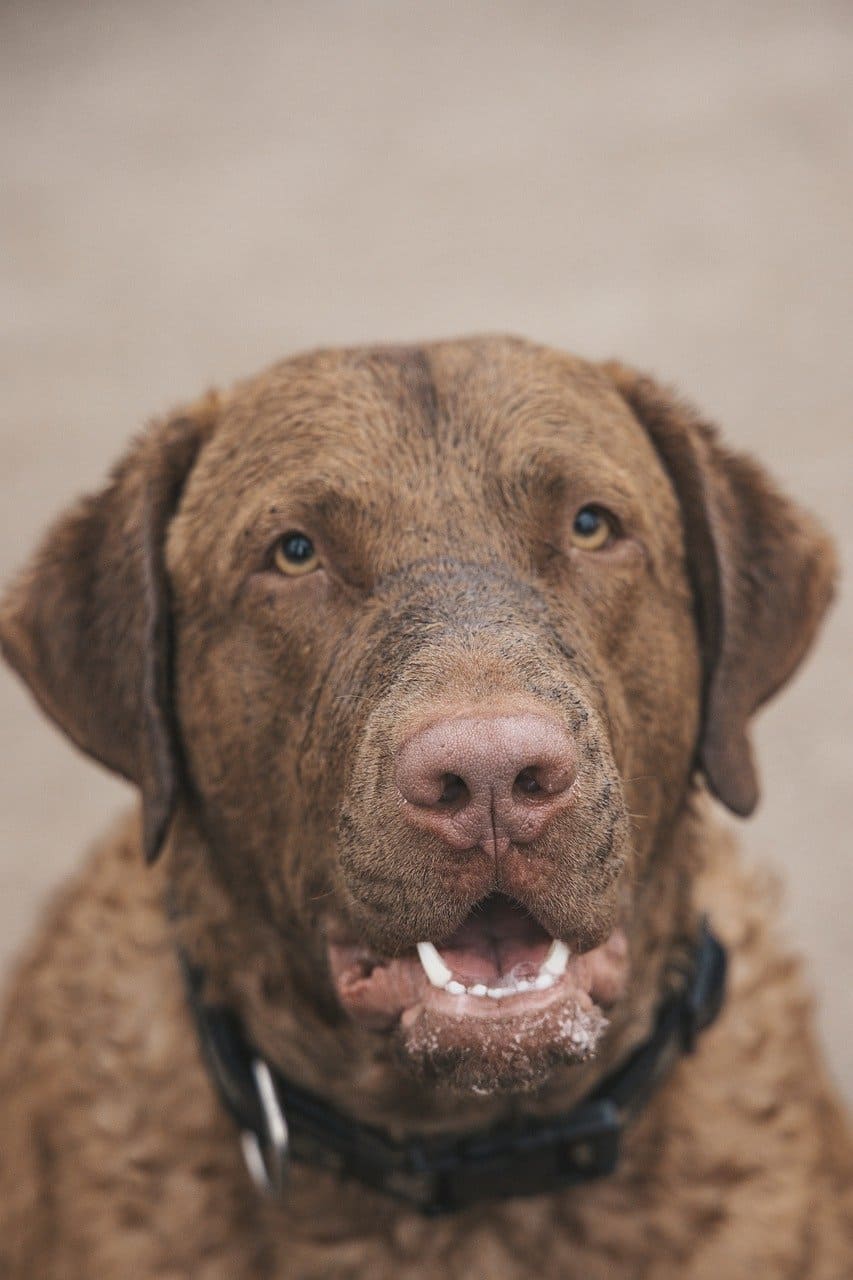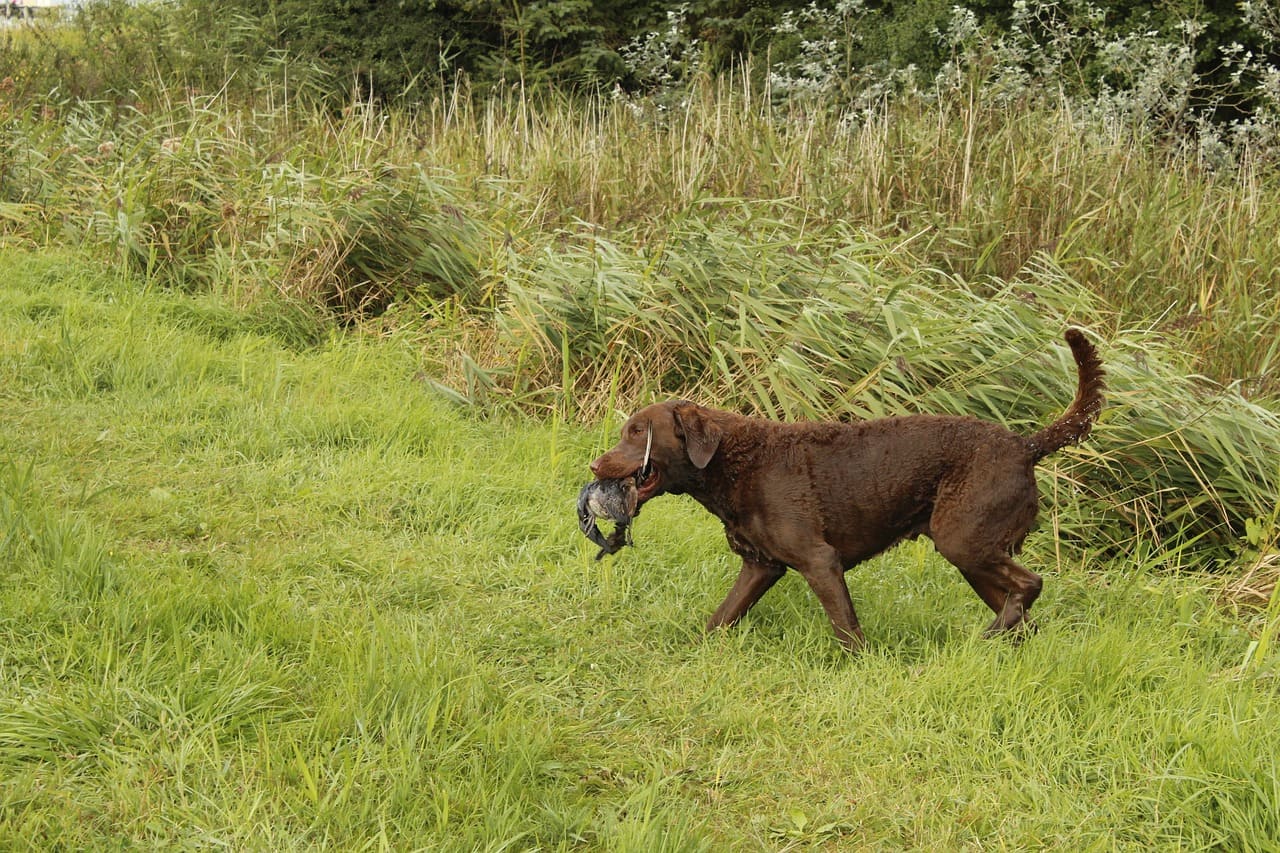The Chesapeake Bay Retriever, often referred to as the “Chessie,” is a unique and versatile breed known for its love of water and strong work ethic. This breed is famous for its outstanding abilities in waterfowl hunting, which is rooted in its history as a hunting dog in the Chesapeake Bay area. However, like any dog breed, Chesapeake Bay Retrievers come with their own set of pros and cons. In this comprehensive article, we’ll explore the various aspects of this breed to help you determine if a Chessie is the right fit for you and your lifestyle.
Pros

1. Exceptional Water Dogs
Chesapeake Bay Retrievers are often considered the ultimate water dogs. Their webbed feet, water-resistant coat, and strong swimming ability make them exceptional swimmers and retrievers. They can handle the harshest of water conditions and are often the preferred choice for waterfowl hunting. If you enjoy water activities and have a waterfront property or access to lakes or ponds, a Chessie can be your perfect water companion.
2. Loyalty and Devotion
Chessies are known for their unwavering loyalty and devotion to their families. They are protective and loving, forming strong bonds with their owners. This loyalty makes them excellent family dogs and companions. They thrive on being a part of the family and will do anything to keep their loved ones safe.
3. Intelligence
Chesapeake Bay Retrievers are highly intelligent dogs. They are quick learners and respond well to training. Their intelligence makes them suitable for various dog sports, obedience training, and work-related tasks. With proper training, they can excel in activities like agility, obedience, and tracking.
4. Strong Work Ethic
These dogs have an incredible work ethic. This breed was developed to retrieve waterfowl in challenging conditions, and that work ethic is deeply ingrained in their DNA. They take their jobs seriously and are always eager to please. This makes them excellent working dogs for various purposes, not just hunting.
5. Endurance and Stamina
Chesapeake Bay Retrievers are known for their exceptional endurance and stamina. They can keep going for hours, making them ideal partners for active individuals and families who enjoy hiking, jogging, or other outdoor activities. Their endurance also comes in handy for long days of hunting or fieldwork.
6. Protective Instinct
Chessies are natural protectors. While they are loving and loyal, they will not hesitate to protect their family if they sense a threat. This protective instinct makes them excellent watchdogs. They’ll alert you to any unusual activity or visitors, making them a valuable addition to your home security system.
7. Adaptability
These dogs are adaptable and can thrive in various living environments, as long as they receive adequate exercise and mental stimulation. Whether you live in a city apartment or a rural farmhouse, Chesapeake Bay Retrievers can adapt to your lifestyle. However, it’s crucial to ensure they get the exercise and mental stimulation they need to stay happy and healthy.
8. Low Maintenance Coat
Their short, dense, waterproof coat is relatively low maintenance. While they do shed, regular brushing and occasional baths are usually sufficient to keep their coat in good condition. Their coat also provides excellent protection against the elements, making them comfortable in various weather conditions.
9. Healthy Breed
Overall, Chesapeake Bay Retrievers are a relatively healthy breed with a long lifespan compared to some other large breeds. Of course, like any breed, they are prone to certain health issues, but responsible breeding and regular veterinary check-ups can help ensure your Chessie lives a long and healthy life.
Cons

1. Not Ideal for First-Time Owners
Chessies are not the best choice for first-time dog owners. They are a strong-willed and independent breed that requires experienced handling and consistent training. Without proper guidance, they can become dominant and challenging to manage.
2. Stubborn Nature
These dogs are known for their stubborn streak. While their intelligence makes them quick learners, their independent nature can sometimes lead to resistance during training. Patience and consistency are key when working with Chessies.
3. Intense Exercise Needs
Chesapeake Bay Retrievers have high exercise requirements. If their energy isn’t adequately channeled, they can become destructive and develop behavioral issues. They need daily, vigorous exercise, which can be a challenge for individuals with busy schedules.
4. Prone to Boredom
These dogs have active minds, and without proper mental stimulation, they can become bored and engage in undesirable behaviors, such as digging or excessive barking. Puzzle toys, interactive games, and training sessions are essential to keep their minds engaged.
5. Aggressive Towards Other Dogs
Chessies can be aggressive towards other dogs, especially those of the same sex. This breed has a strong prey drive and territorial instincts, which can lead to conflicts with other dogs. Early socialization is crucial to manage their aggression towards other animals.
6. Requires Early Socialization
To prevent unwanted behaviors and aggression, Chesapeake Bay Retrievers need extensive early socialization. This means exposing them to various people, animals, and environments from a young age. Socialization helps them become well-adjusted and less likely to develop behavioral problems.
7. Shedding
While their coat is relatively low maintenance, Chessies do shed. You can expect a fair amount of shedding, especially during seasonal changes. Regular brushing and grooming can help manage this, but if you’re averse to dog hair, this breed may not be the best choice for you.
8. Health Concerns
While they are generally healthy, Chesapeake Bay Retrievers are prone to certain health issues, including hip dysplasia, elbow dysplasia, and progressive retinal atrophy. Responsible breeding and regular vet check-ups can help mitigate these risks, but potential owners should be aware of these concerns.
9. Prone to Weight Gain
Due to their strong appetites and love for food, Chesapeake Bay Retrievers can be prone to weight gain if their diet is not closely monitored. Obesity can lead to a range of health issues, including joint problems and reduced lifespan.
10. Grooming Challenges
While their coat is low maintenance in terms of brushing, it can be a challenge to keep clean, especially if they spend a lot of time in water and mud. Proper grooming and hygiene are important to prevent skin issues and odors.
Is a Chesapeake Bay Retriever Right for You?
The decision to bring a Chesapeake Bay Retriever into your life is a significant one. Like any breed, Chessies have their unique set of pros and cons, and it’s crucial to evaluate if they align with your lifestyle and expectations.
Chesapeake Bay Retriever Pros:
- Exceptional water dogs for water enthusiasts.
- Loyalty and devotion to their families.
- High intelligence and trainability.
- Strong work ethic for various tasks.
- Endurance and stamina for active owners.
- Protective instinct for added security.
- Adaptability to different living environments.
- Low-maintenance coat.
- Generally a healthy breed with a long lifespan.
Chesapeake Bay Retriever Cons:
- Not ideal for first-time dog owners.
- Stubborn nature that requires patience and consistency.
- High exercise requirements.
- Prone to boredom without mental stimulation.
- Aggressive tendencies towards other dogs.
- Requires early socialization to prevent behavioral issues.
- Shedding can be an issue for those averse to dog hair.
- Health concerns, including hip dysplasia and progressive retinal atrophy.
- Prone to weight gain without careful diet management.
- Grooming challenges due to their love for water and mud.
Before adopting a Chessie, consider the following questions:
- Do you have experience with dogs and feel confident in your training abilities?
- Can you commit to providing the necessary exercise and mental stimulation they require?
- Are you prepared for their stubborn and independent nature during training?
- Are you willing to invest time in early socialization to prevent behavioral issues?
- Do you have a safe and secure environment for them, considering their protective instincts and aggressive tendencies towards other dogs?
- Are you comfortable with their shedding and grooming requirements?
- Are you prepared to monitor their diet to prevent weight gain and associated health issues?
- Do you have the time and dedication to nurture their loyalty and form a strong bond with them?
If you answered “yes” to most of these questions and are willing to invest time and effort into training, socialization, and exercise, a Chesapeake Bay Retriever may be a great addition to your family. They are a loving, loyal, and hardworking breed that can thrive in the right environment.
Conclusion

The Chesapeake Bay Retriever is a unique and versatile breed with a rich history as a waterfowl hunting dog. While they come with their share of challenges, they also bring numerous benefits to the right owner or family. Their loyalty, intelligence, and work ethic make them excellent companions for those who can provide the physical and mental stimulation they need.
Before bringing a Chesapeake Bay Retriever into your life, carefully consider their pros and cons and evaluate if their characteristics align with your lifestyle and expectations. With the right training, socialization, and care, a Chessie can become a devoted member of your family, bringing years of joy, companionship, and adventure to your life.
